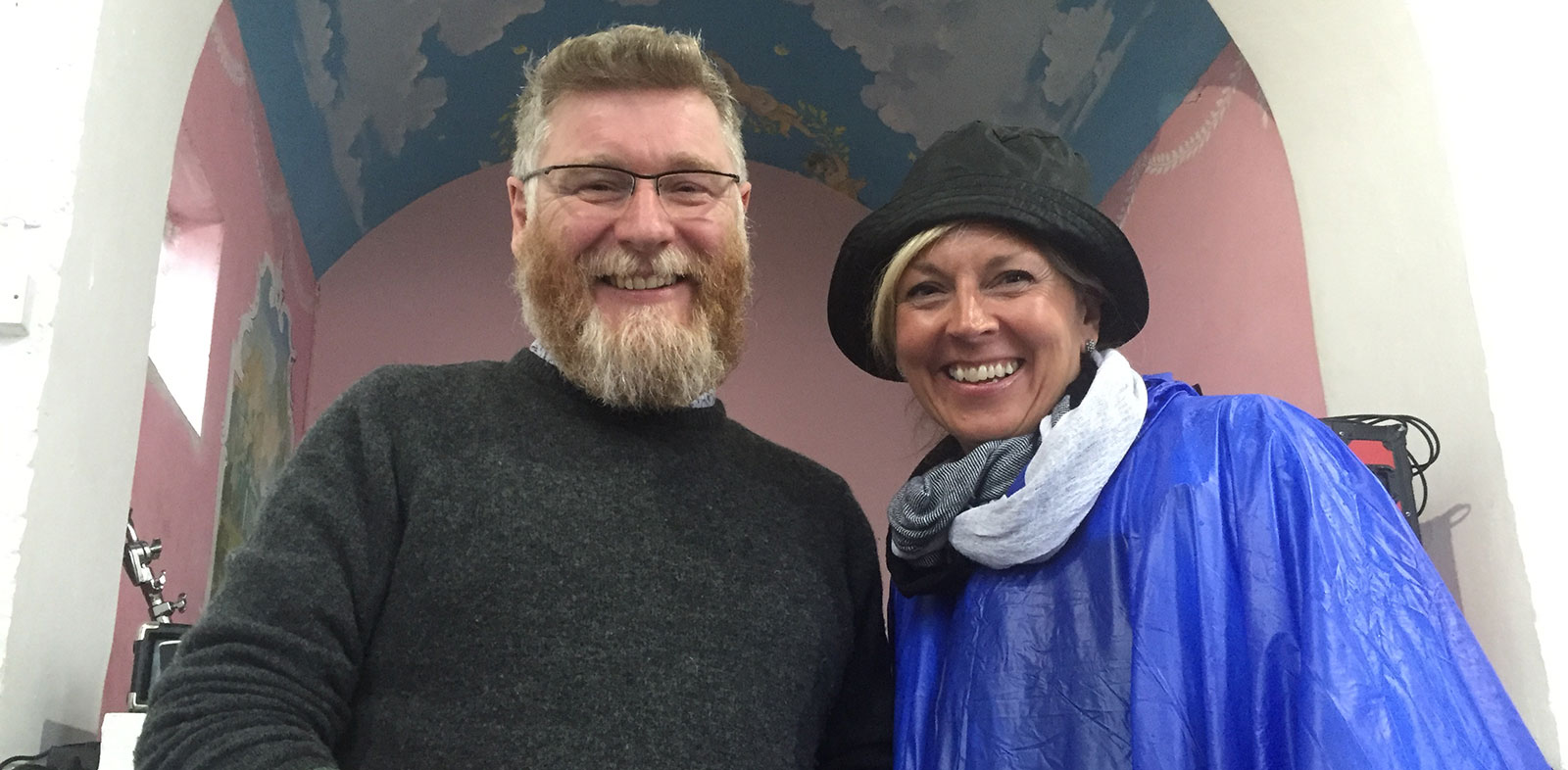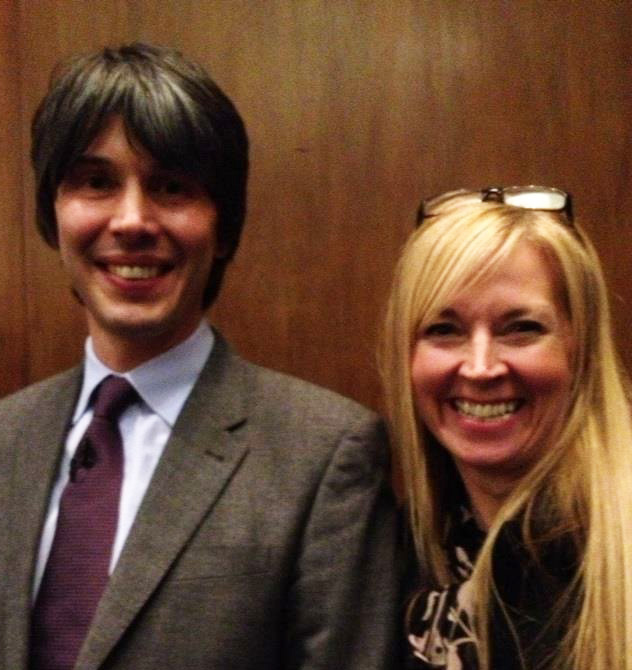Pulsars, the Big Bang and Business Change

With Professor Tim O’Brien
I’m always looking at new ways to see things; to investigate other disciplines for inspiration. My interest in science at school has never left me and I have been lucky enough to attend a few interesting events, which have led me to think a bit more about the vast discipline of Physics.
Attending the ‘Michael Faraday Award and Lecture’ by Professor Brian Cox, Professor of Particle Physics at The University of Manchester and The Royal Society Professor for Public Engagement in Science. I was delighted to see so many young, enthusiastic people in the audience, their imagination sparked by his engaging stories of the valuable impact of science on our lives.
At Festival No.6, Professor Tim O’Brien, Professor of Astrophysics and Associate Director of Jodrell Bank, told the festival goers fantastic stories about Pulsars and the Big Bang, later playing sounds from space, captured and used to make the music track, Hello Moon.
More recently, we’ve been visiting open days at universities, looking at Physics courses and as part of these, attending short lectures covering curriculum content, touring laboratories and looking at research projects.
So, I’ve been reflecting on how transformation can learn from the big topic of Physics…
Keep looking at the big picture and the smallest detail…and check they connect up
Physics seeks to understand the universe from the smallest particles to superclusters of galaxies. As part of this vast scope it’s seeking to find connections and build improved insight. Taking this discipline to business transformation, I believe that understanding the complete landscape of any programme of change is vital.
Ahead of any formal scope statement, this is about putting your arms around the big context, everything from the economy, to market dynamics and competitive forces. Looking inside the organisation, a scan can assess history, key milestones, evolving direction, culture and current challenges. Then at the more atomic level, understanding the core business capabilities and how effectively the different parts of the organisation work together to deliver your purpose.
All this is about simultaneously looking ‘up and out’ and ‘down and in’, seeking to find the reinforcing connections and identify any unbalancing disconnects.
As this picture evolves, we can start to build a systemic picture, seeing all the parts of the market and organisation, and identifying where there is mutual reinforcement… or gaps. A strong place to start as we shape a programme.
Experimentation is a key part of Physics, and can be invaluable as we design and deliver change. The concept of a pilot is not new and many of the agile, digital programme I have worked on run Discovery phases or sprints. This involves taking concepts into small scale launches very quickly to learn how they work. We could think more about building an experimental way of working which accepts failure as part of the learning process. However, the hypothesis for Physics and Business remains the same; ‘What happens when we do this?’
Bring together different minds and perspectives
Experimental Physics requires strong collaboration across organisations, institutions and countries. A complex stakeholder landscape but bound together with a common passion and objective. It’s common practice to build specialist teams and clear roles in transformation programmes, but often, this is not enough to fire up true, self-perpetuating collaboration. We need to work harder on building common objectives. We need to clearly see our vital part and how we work as a network. And we need to bring in more diverse ways of thinking and doing.
Tell our stories of change
What Brian Cox and Tim O’Brian do is tell inspiring, interesting, remarkable stories about Physics. They bring the theoretical to life, sharing the exploration process and describing their experiences. They are both self-deprecating and don’t take themselves too seriously. We can learn a lot from how they have translated complex physics into inspiring stories.
We need to craft our stories of change so that we all tell them, sharing our quests, being open about the difficulties we encountered and honouring the achievements. Business Change is not adopted because a launch calendar lands something new at our desks. It requires teams to ‘pull’. A good part of that pull comes from feeling part of something bigger with a shared experience. Good stories remain embedded in company culture and add to the tapestry of transformation endeavours.

With Professor Brian Cox